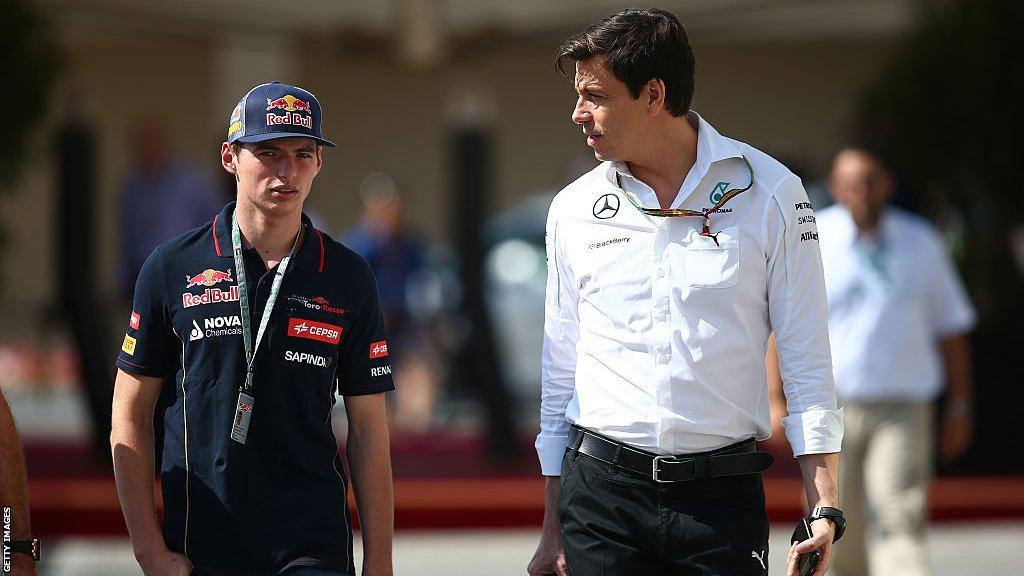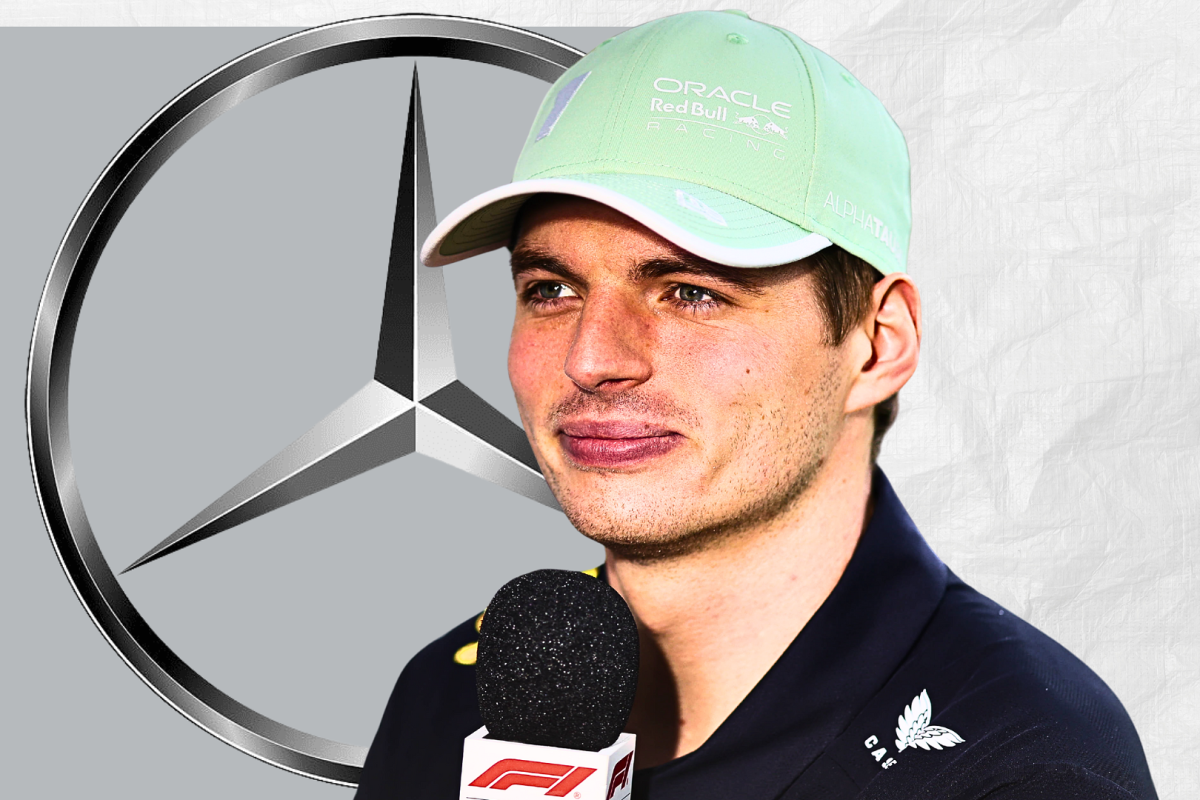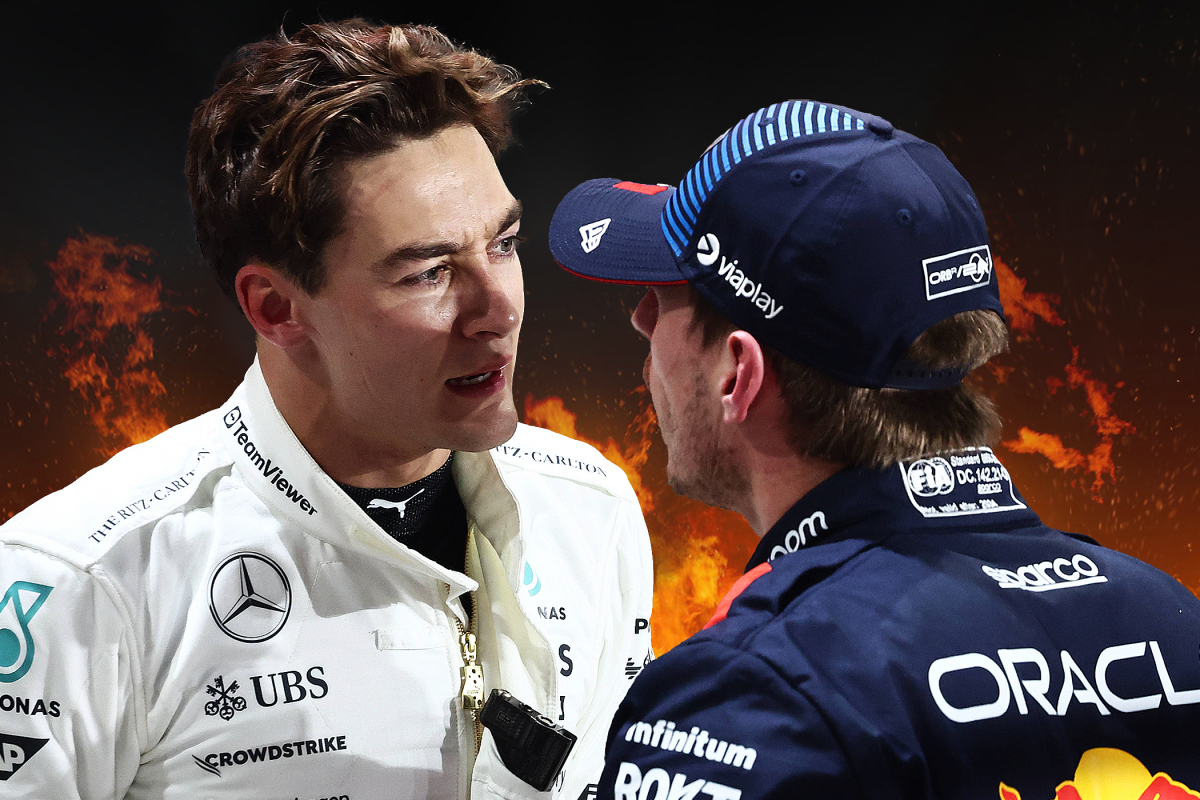Red Bull’s Empire on the Brink: Verstappen, Mercedes, and the Looming Power Shift in Formula 1
The Formula 1 world is buzzing with a rumor that, if true, could trigger one of the most seismic shifts in the sport’s modern history: Max Verstappen—the reigning four-time world champion and the face of Red Bull Racing—could soon be trading in his iconic red and blue colors for Mercedes silver.
In a sport where timing, precision, and power dynamics are everything, the news that Mercedes has reportedly received the green light from chairman Ola Källenius to launch a full-scale pursuit of Verstappen for the 2026 season is as much a strategic chess move as it is a media bombshell. The implications of such a move? Monumental.

The Escape Clause and the Championship Race
While Verstappen is contractually tied to Red Bull until the end of 2028, insiders have hinted at a key performance clause that could give him an early exit. The condition? If Verstappen falls below fourth in the drivers’ standings by the Hungarian Grand Prix—F1’s final race before the summer break—he may be free to walk.
As of now, Verstappen is holding onto third, narrowly ahead of George Russell, Mercedes’ current lead driver. If Russell, or perhaps Ferrari’s Charles Leclerc who trails even further behind, were to overtake Verstappen in the standings before August, the door to Mercedes could swing wide open.
Mercedes’s Master Plan
The plot thickens with reports from Italy’s La Gazzetta dello Sport, claiming that internal conversations within Mercedes have shifted into high gear. Ola Källenius and team principal Toto Wolff, along with Ineos boss and team co-owner Sir Jim Ratcliffe, are said to be orchestrating a long-term coup to bring Verstappen to Brackley.
This isn’t just speculation. Källenius himself dropped a not-so-subtle hint at the Spanish Grand Prix, telling Sky Germany that “Max would look good in silver.” And with the 2026 regulation overhaul looming—a new era of 50% electrification, sustainable fuels, and active aerodynamics—Mercedes sees an opportunity to reset the board and return to dominance.
History is on their side. When the sport underwent major engine changes in 2014, Mercedes pounced, launching an eight-year era of dominance with a hybrid power unit that left rivals gasping in their wake.
The Financial and Strategic Gamble
Signing Max Verstappen wouldn’t just be a technical triumph—it would be a financial tsunami. With a reported salary of around $55 million per season at Red Bull, Verstappen is the highest-paid driver on the grid. In contrast, George Russell is slated to earn approximately £17 million in 2025, while Mercedes’s rookie Andrea Kimi Antonelli will earn a modest £1.5 million.
For Mercedes, this would require a hefty war chest—one reportedly discussed in Monaco during a clandestine meeting between Källenius, Wolff, and Ratcliffe. A deal of this magnitude would be more than a salary agreement; it would be a bet on Verstappen being the cornerstone of Mercedes’s next era.

George Russell: The Wild Card
If Verstappen does join Mercedes, the question turns to George Russell. With his contract running through 2025, the young Briton finds himself in a precarious position. Would he stay and battle Verstappen head-to-head in what could become an explosive intra-team rivalry? Or would he be asked to step aside?
Russell has acknowledged the rumors, admitting that conversations are “very much ongoing.” The subtext is clear—he knows his future might hinge on Mercedes’s ability to land Verstappen and how willing he is to share the spotlight, or even play second fiddle.
History has shown that Mercedes doesn’t shy away from having two alphas in the garage—just ask Lewis Hamilton and Nico Rosberg. But the fallout from that rivalry also makes it clear that managing two top-tier talents under one roof can be as volatile as it is electrifying.

Red Bull’s New Era—and Uncertain Future
Meanwhile, Red Bull is preparing for a seismic transition of its own. Beginning next year, the team will produce its own engines through its new Red Bull Powertrains division, in partnership with American automaker Ford. Their long-time engine partner Honda is shifting its technical focus to Aston Martin.
This adds another layer of uncertainty. Building an engine from scratch is a massive endeavor, and while Red Bull has poured investment into the project, its future competitiveness remains an open question. Former team principal Christian Horner even admitted that expectations should be tempered, stating it would be “embarrassing” for Mercedes if Red Bull’s unproven power unit leapfrogged them in 2026—but also implying that’s unlikely.
Verstappen, ever the competitor, may not be keen to wait and see if Red Bull can build a winning engine from scratch. With his legacy at stake, aligning himself with a proven manufacturer like Mercedes could be a move driven more by performance prospects than loyalty.
The Power Shift
Mercedes has been on the back foot since F1’s 2022 regulation change, managing just six wins across three seasons. But if history is any guide, don’t count them out. With the 2026 reset on the horizon, and with Verstappen as their potential ace, Mercedes could be poised to reclaim the throne.
Red Bull, meanwhile, faces the daunting task of proving it can remain a frontrunner in a landscape where it will no longer rely on Honda’s engineering. While the team culture is strong and their driver program deep, losing Verstappen would be a gut punch. Not just because of his talent, but because of what his departure would signal: that even the most dominant team can bleed.
The Bottom Line
As the F1 summer break nears, all eyes are on the driver standings and Verstappen’s potential performance clause. Will he slip just enough to activate his exit? Will legal teams on both sides draft a path forward regardless?
And if Verstappen does make the leap, how will Mercedes manage the internal dynamics? Could we see a modern-day version of Prost vs. Senna in the form of Verstappen vs. Russell? Or will egos, pressure, and expectations implode the project from within?
What’s clear is that the power struggle in Formula 1 is no longer just on the track—it’s in the boardrooms, behind closed doors, and in the calculated decisions being made today to dominate tomorrow.
The empire is shifting. And Max Verstappen might just be the kingmaker.
Full Video:





